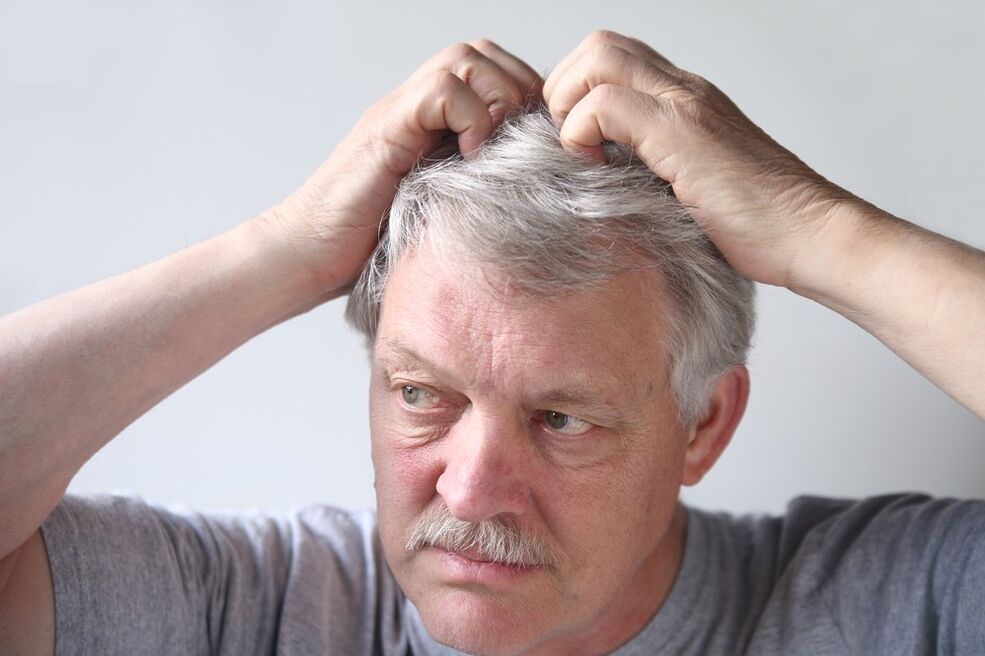
It can occur at any age, but the initial symptoms usually appear gradually between 15 and 35 years of age.
There are unsightly spots all over the body. The infection can be very disturbing, which can also cause discomfort and sometimes even pain. The manifestations can be of varying degrees: from a few spots with dandruff-like scales to large areas of skin with a rash. In most cases, psoriasis occurs on the elbows, knees, waist and head. There may be pits or other irregularities on the nails. The rash can manifest in many ways, including pustules, skin tears, itching, and scratched areas. Psoriasis is not contagious.
Signs and symptoms
- Dry red patches on the skin, covered with silver scales.
- Small smooth spots all over the body (more common in children).
- Swollen and tight ligaments.
Warning signs and symptoms
Redness and hair loss throughout the skin.
Psoriasis is a common skin disease that affects the life cycle of cells. It usually takes about a month for new cells to emerge from the lower layers of the skin and form there. Outside, they die and are separated by tiny particles. With psoriasis, the entire process occurs within a few days: the cells die quickly, the skin is covered with a thick shell, and there are no hair spots.
In one in ten cases, arthritis is accompanied by psoriasis. For most of these people, the impact of psoriatic arthritis is minimal. The affected joints will feel some pain, but this has no effect on the health of the entire body. This pain rarely restricts mobility like rheumatoid arthritis.
reason
In psoriasis, skin cells multiply rapidly to form a thick, less viscous skin layer. This usually does not happen until therapeutic intervention.
Factors that cause psoriasis:
- Systemic diseases (such as tonsillitis).
- The immune system's response to disease.
- Damage to the skin.
- Reaction to drugs or vaccines.
- pressure.
- Excessive drinking.
- Environmental factors, such as direct sunlight or chemicals (disinfectants, paint).
Doctors believe that psoriasis is a disease caused by multiple factors and is genetic. But scientists have not fully figured out how much it has to do with genetic organs.
diagnosis
The diagnosis of psoriasis is usually based on a physical examination. The doctor may need a sample of skin cells for analysis to determine the nature of the disease and the possibility of fungal infection.
treat
Psoriasis is difficult to control, one of the reasons is-depending on the type, severity, and response to treatment, there are many types of psoriasis. Each of them has its own characteristics, and each needs a special method, so doctors have to deal with each case for a long time. The goal of treatment is to regulate the growth and maturation of skin cells. For mild cases, moisturizing soaps, shampoos, lotions and ointments are sufficient.
It can be treated in the following ways:
Creams and ointments
Calcipotriene ointment containing vitamin D is usually prescribed. Calcipotriene controls the overproduction of skin cells. This is a medicine to treat mild to moderate psoriasis. Another option is treatment with retinoids such as tazarotene. The doctor may also prescribe drugs containing glucocorticoids and resins.
Topical preparations
Second-generation retinoic acid can help slow down the growth of skin cells in severe psoriasis. Be extra careful when using this medication because it can cause side effects such as irritation of the eyes and lips, hair loss, and excessive sensitivity to the sun. If taken by a pregnant woman, it can complicate childbirth.
The other is a drug from the antimetabolites group, which prevents the growth of skin cells in psoriasis, and a drug that blocks the immune system. These drugs can also cause side effects, including kidney and liver damage, and are usually only used in the most severe cases.
Phototherapy
Psoriasis ointment is a combination of ultraviolet A (PUVA), a photosensitive drug, and ultraviolet A (UVA) jointly inhibits the growth of skin cells in some cases of psoriasis. However, long-term PUVA treatment (250 or more) increases the risk of skin cancer, including melanoma, which is a potentially fatal skin cancer. Sunbathing in warm sunlight (considering that all measures have been taken to avoid burns) and the use of coal tar and ultraviolet B radiation (Heckman's method) are also effective treatments. A new type of phototherapy called "Narrow Band Ultraviolet B" (NB-UVF) can be as effective as PUVA and does not require medication before each treatment. It does not have skin cancer tendency like PUVA.
Personal care
In order to control your disease, you need to:
- Eat vitamin-rich foods, rest for a few hours according to your body’s needs, and exercise regularly.
- Maintain a healthy weight. Psoriasis often occurs in the skin folds of obese people.
- Do not rub or scratch the area with psoriasis lesions.
- Wash every day to remove dead cells. Avoid using hot water or harsh soaps.
- Moisturize skin. Pat the skin lightly after the shower, and apply an oily moisturizer immediately after washing, while the skin still contains a lot of moisture. Do not use lotions or creams that contain alcohol. Use air conditioning and keep the room temperature cool at all times.
- Use soaps, shampoos, and ointments that contain liquid carbon tar and salicylic acid.
- Sunbathe in mild sunlight, but avoid sunburn.
- When the symptoms of the disease are very obvious, use a cream with a cortisone content of 0. 5 to 1% for several weeks.























